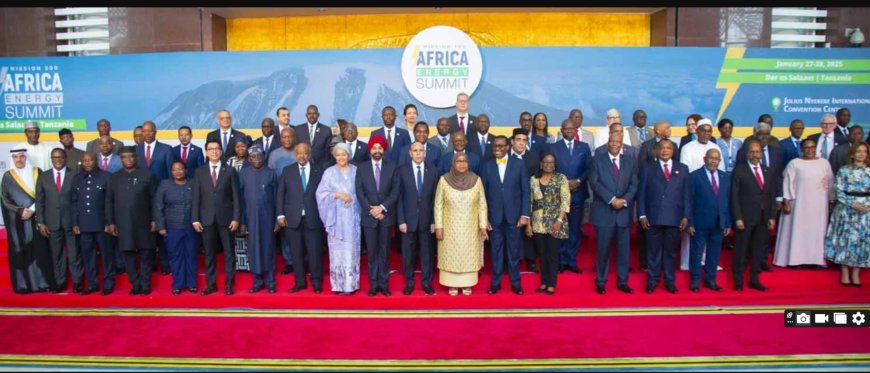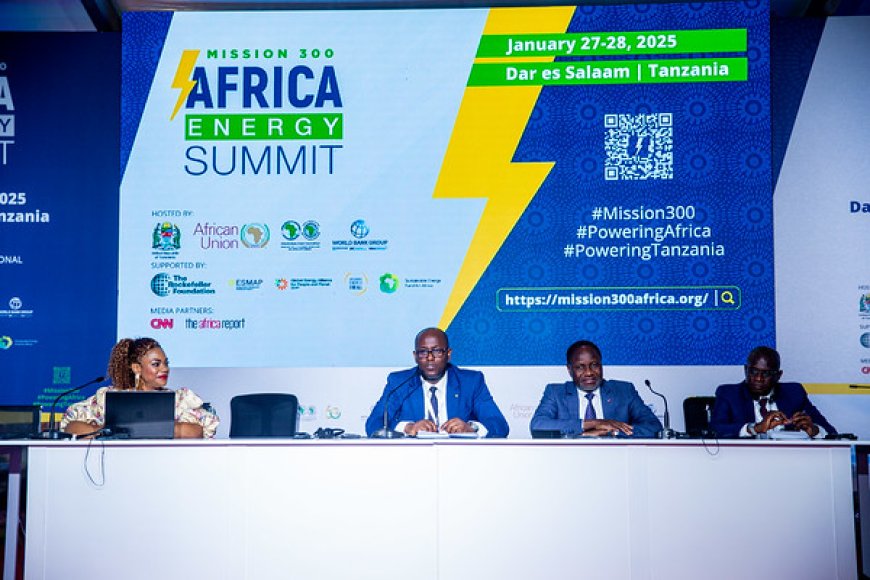30 African Heads of State pledged to deliver electricity to 300 million individuals by 2030.
During the Mission 300 Africa Energy Summit, 30 African Heads of State pledged to deliver electricity to 300 million individuals by 2030. Discover the $50 billion worth of commitments, National Energy Compacts, and joint initiatives aimed at bridging Africa’s energy divide.
DAR ES SALAAM, January 28, 2025 — Today, thirty African Heads of State and governments pledged to implement tangible reforms and actions to increase access to reliable, affordable, and sustainable electricity. This initiative seeks to stimulate economic growth, enhance quality of life, and promote job creation throughout the continent.
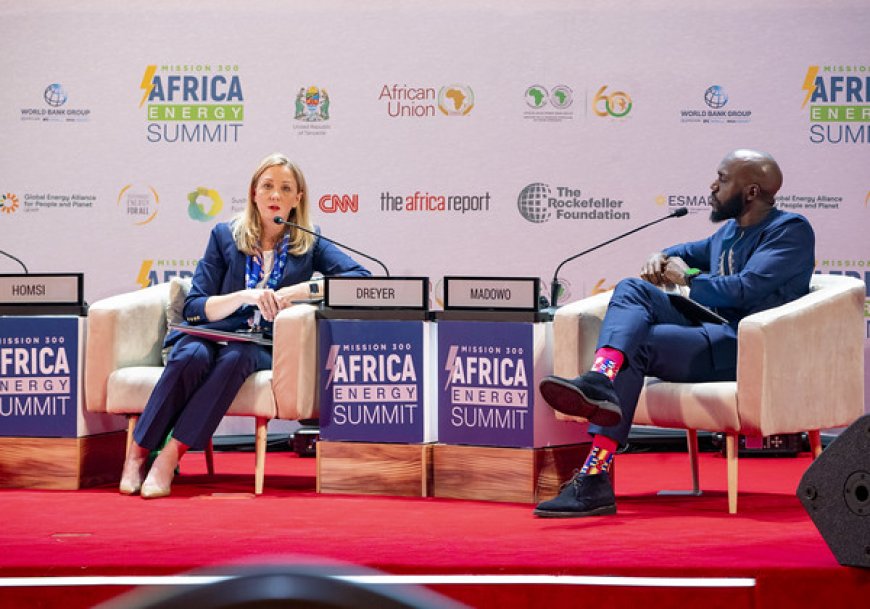
The Dar es Salaam Energy Declaration, ratified at the Mission 300 Africa Energy Summit, represents a crucial advancement in bridging the energy divide in Africa, where more than 600 million individuals lack electricity. The commitments specified in the Declaration are essential to the Mission 300 initiative, which unites governments, development banks, partners, philanthropies, and the private sector to supply power to 300 million Africans by 2030. Mission 300 partners pledged over $50 billion during the summit to improve energy access across the continent. This Declaration will be submitted to the African Union Summit in February for official endorsement.
Mission 300 tackles the essential issue of energy access, acting as a key element of the employment agenda for Africa’s growing youth population and laying the groundwork for future progress.
Twelve countries—Chad, Côte d'Ivoire, Democratic Republic of Congo, Liberia, Madagascar, Malawi, Mauritania, Niger, Nigeria, Senegal, Tanzania, and Zambia—submitted comprehensive National Energy Compacts. These compacts aim to enhance electricity access, boost renewable energy usage, and attract more private investment. Each country's plan is time-sensitive, data-driven, highly endorsed, and centers on affordable power generation, increasing connections, and fostering regional integration. They also strive to improve utility efficiency and promote clean cooking solutions. Utilizing satellite and electronic mapping technologies, these compacts pinpoint the most cost-effective strategies for delivering electricity to underserved communities.
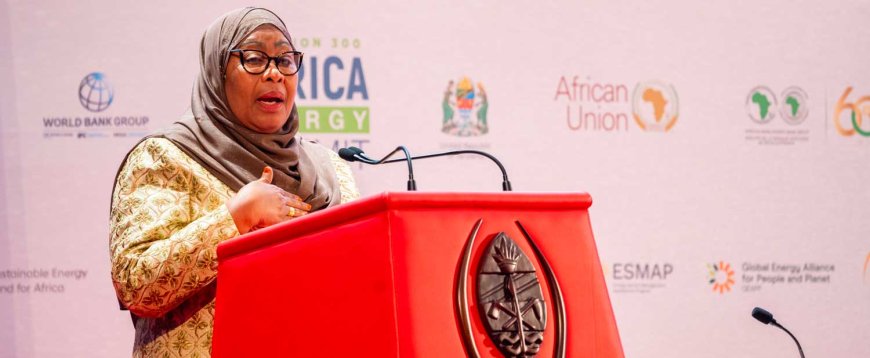
“Tanzania is honored to have hosted such a monumental summit to discuss how, as leaders, we will be able to deliver on our promise to our citizens to provide power and clean cooking solutions that will transform lives and economies,” said H.E. Dr. Samia Suluhu Hassan, President of the Republic of Tanzania.
Successful implementation of the National Energy Compacts requires robust political will, a clear long-term vision, and full backing from Mission 300 partners. Governments are fostering this by introducing comprehensive reforms and enhancing concessional financing while also forming strategic alliances with philanthropic entities and development banks to stimulate private sector investment.
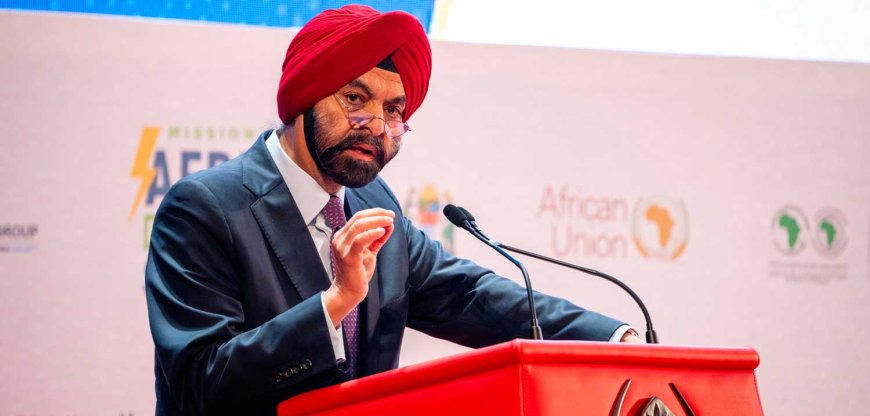 Mr. Ajay Banga, President of the World Bank Group.
Mr. Ajay Banga, President of the World Bank Group.
“Access to electricity is a fundamental human right. Without it, countries and people cannot thrive,” said Ajay Banga, President of the World Bank Group. “Our mission to provide electricity to half of the 600 million people in Africa without access is a critical first step. To succeed, we must embrace a simple truth: no one can do it alone. Governments, businesses, philanthropies, and development banks each have a role—and only through collaboration can we achieve our goal.”
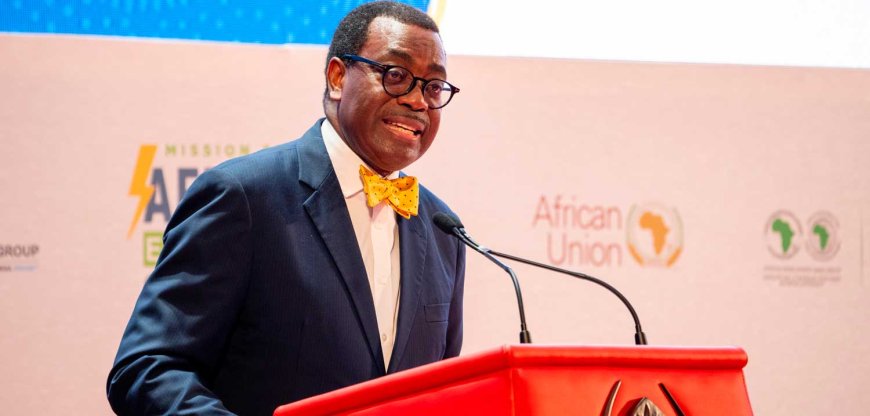 Dr. Akinwumi A. Adesina, President of the African Development Bank Group.
Dr. Akinwumi A. Adesina, President of the African Development Bank Group.
He stressed the urgent need for action to speed up electrification throughout the continent. "Essential reforms are necessary to increase the share of renewable energy, enhance the performance of utilities, ensure licensing and power purchase agreements are transparent, and create stable tariff structures that correspond to production costs. Our joint effort is to assist you, state and government leaders, in establishing and executing clear, national energy compacts that align with your countries' electricity goals.”
At the summit, partners unveiled several commitments:
• The African Development Bank Group and the World Bank Group will allocate $48 billion in financing for Mission 300 through 2030, with adjustments possible based on implementation needs.
• Agence Française de Développement (AFD) will invest €1 billion to enhance energy access in Africa.
• The Asian Infrastructure Investment Bank (AIIB) has committed $1 billion to $1.5 billion to support Mission 300.
• The Islamic Development Bank (IsDB) Group plans to provide $2.65 billion for Mission 300 and energy access in Africa from 2025 to 2030.
• The OPEC Fund is committing $1 billion to support Mission 300 and energy access in Africa.
The World Bank Group and the African Development Bank Group have introduced Zafiri, an investment firm that facilitates private sector-driven solutions like renewable mini-grids and solar home systems. In the initial phase, Zafiri's anchor partners plan to invest up to $300 million and leverage up to $1 billion to tackle Africa's ongoing equity challenges. The firm commitments from governments and partners during the summit highlight the unique strength of the Mission 300 partnership. By integrating government reforms, enhanced financing, and public-private collaborations, African nations are set to transform plans into reality, benefiting millions of individuals.

The United Republic of Tanzania, the African Union, the African Development Bank Group (AfDB), and the World Bank Group (WBG) hosted the Mission 300 Africa Energy Summit, which was supported by the Rockefeller Foundation, Energy Sector Management Assistance Program (ESMAP), Global Energy Alliance for People and Planet (GEAPP), Sustainable Energy for All (SEforALL), and the Sustainable Energy Fund for Africa.
News Resource: World Bank Group website.
Source of Pictures: Africa Development Bank's Website.
More about Mission 300: https://www.worldbank.org/en/programs/energizing-africa
Facebook: http://www.facebook.com/worldbank
X (Twitter): http://www.x.com/worldbank
YouTube: http://www.youtube.com/worldbank
 Kinyarwanda
Kinyarwanda
 English
English






























































